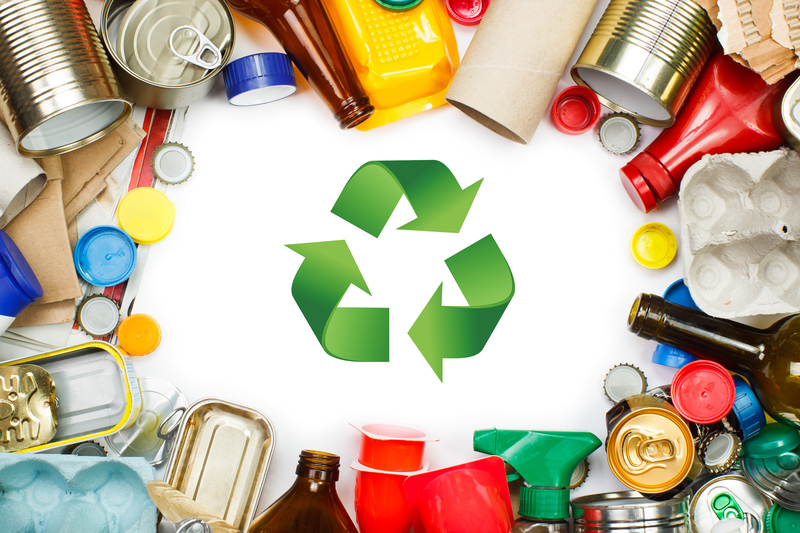Innovative Waste Reduction Strategies for Your Home
Are you looking for innovative waste reduction strategies for your home? In a world grappling with the consequences of overconsumption and overflowing landfills, reducing household waste has never been more vital. This comprehensive guide explores creative approaches and practical solutions that not only minimize your environmental impact but also save you money and foster a healthier, more sustainable lifestyle.

Why Home Waste Reduction Matters
Everyday choices made at home directly impact the environment. According to recent studies, the average household in the United States produces over 4.5 pounds of waste each day. Much of this ends up in landfills, contributing to greenhouse gas emissions and pollution. Implementing innovative household waste reduction methods is critical to preserving resources and protecting the planet for future generations.
- Reduces landfill waste
- Conserves natural resources
- Saves money on purchases and waste disposal
- Minimizes pollution and greenhouse gas emissions
Assessing Your Household Waste
The first step in adopting innovative waste reduction strategies at home is understanding what you throw away. Conduct a simple waste audit:
- Collect all trash and recyclables for one week.
- Sort items into categories (plastics, food waste, paper, etc.).
- Analyze which items are most abundant.
- Identify opportunities for reduction or replacement.
Armed with this knowledge, you can tailor your efforts to target the most significant sources of household waste.
Creative and Effective Home Waste Reduction Strategies
1. Rethink, Refuse, Reduce, Reuse, Recycle
Before recycling or composting, start higher up the waste hierarchy:
- Rethink every purchase: Do you truly need it?
- Refuse single-use packaging and freebies.
- Reduce by buying in bulk or choosing products with less packaging.
- Reuse by opting for durable goods and repurposing containers.
- Only then, recycle as the last resort.
2. Smart Composting Solutions
Food scraps and yard clippings make up a significant portion of household garbage. Composting is one of the most powerful household waste management strategies for organic materials:
- Install a backyard compost bin for fruit/veggie peels, coffee grounds, and garden waste.
- Try indoor composting solutions like worm bins or Bokashi systems for apartments or smaller spaces.
- Use the rich compost to fertilize houseplants and gardens, eliminating the need for chemical fertilizers.
Composting can divert up to 30% of your waste from the landfill, returning valuable nutrients to the soil and reducing methane emissions.
3. Embrace the Zero-Waste Kitchen
The kitchen is where most home waste is generated. Use these innovative kitchen waste reduction tactics:
- Switch to reusable beeswax wraps and silicone bags instead of plastic wrap or sandwich bags.
- Buy in bulk using your own containers to avoid packaging waste.
- Store leftovers in reusable glass jars or stainless steel boxes.
- Make homemade snacks to cut down on individually wrapped items.
- Plan meals to use up perishable items before they spoil.
Small shifts in food storage and purchasing habits can lead to big waste reduction at home.
4. Smart Shopping: Buy Less, Buy Better
One of the most effective waste prevention strategies for households is to be a conscious consumer:
- Opt for high-quality, long-lasting products over cheap disposables.
- Choose items with minimal or recyclable packaging.
- Prefer products made from recycled materials whenever possible.
- Support local businesses to reduce transportation emissions and packaging waste.
- Avoid impulse purchases--ask yourself if you genuinely need it.
5. Green Cleaning: Minimize Toxic and Plastic Waste
Many store-bought cleaning products come in single-use plastic bottles and contain harmful chemicals. Reduce their impact by:
- Making your own cleaners with vinegar, baking soda, and essential oils.
- Using refillable spray bottles and concentrated cleaner pods.
- Choosing biodegradable sponges and reusable cleaning cloths over paper towels.
Eco-friendly cleaning not only cuts waste but also creates a healthier home environment.
6. Digital Over Paper: Innovative Paper Waste Reduction
Paper waste--from mailers and magazines to receipts and packaging--adds up quickly. Reduce paper waste by:
- Opting for paperless billing and online subscriptions.
- Unsubscribing from junk mail and switching to digital manuals and documents.
- Using reusable cloths and napkins rather than paper alternatives.
- Reusing paper for notes, crafts, or as garden mulch if appropriate.
7. Cut Plastic Waste with Reusables
Single-use plastics are one of the biggest threats to our environment. Here's how your household can innovate:
- Carry a reusable water bottle, coffee cup, and shopping bag wherever you go.
- Purchase loose produce to avoid plastic bags--use mesh produce sacks instead.
- Switch to bar soap and shampoo bars to eliminate plastic packaging.
- Refill cleaning and personal care products at packaging-free or refill stores.
8. Donate, Repair, Upcycle: Breathing New Life into Old Items
Many items are thrown away long before their lifecycle ends. Practice innovative household waste reduction by:
- Repairing electronics, clothing, and furniture before discarding.
- Donating gently used items to charities or secondhand stores.
- Upcycling glass jars, old t-shirts, and unused containers for crafts and storage.
- Participating in local swap events or online neighborhood exchanges.
Leveraging Technology for Waste Minimization
Technology offers powerful tools for home waste management innovation:
- Use food-waste tracking apps to reduce spoilage and unnecessary purchases.
- Invest in smart kitchen composters that quickly break down food scraps right in your home.
- Monitor energy waste with smart plugs and thermostats, further reducing environmental impact.
- Order groceries from services that prioritize minimal and reusable packaging.
Community-Level Waste Reduction Initiatives
Household waste minimization isn't limited to what happens within your four walls. Get involved in broader solutions:
- Participate in local composting or recycling programs--many cities now offer curbside collection.
- Encourage your local stores to offer refill stations and bulk food sections.
- Join "Buy Nothing" groups to share items in the community rather than throwing them away.
- Initiate neighborhood cleanups and educational workshops.
Monitoring Progress: Tracking Your Waste Reduction Success
Implementing innovative waste reduction techniques at home is a journey. Stay motivated and accountable:
- Keep a waste diary to record what you throw away each week.
- Set measurable goals (e.g., reducing trash output by half in six months).
- Celebrate milestones and share your achievements on social media to inspire others.
- Regularly review and adjust strategies for maximum impact.
Common Challenges and How to Overcome Them
Initial Setup Costs
Reusable products, compost bins, and smart technology can be more expensive upfront. However, consider them as investments--over time, you'll spend less on disposables and enjoy savings from reduced consumption.
Time and Convenience
Adapting to new sustainable home practices can be time-consuming at first. Build new routines gradually, and remember that every bit counts--perfection isn't necessary for significant progress.
Resistance from Family Members
Engage household members in the process. Make sustainable living fun by involving kids in crafts or cooking with leftovers, and share educational resources to build awareness.

FAQs: Innovative Waste Reduction Strategies for Your Home
Q: What is the most effective way to start reducing household waste?
A: Begin by conducting a waste audit to see what you waste most and start with small, manageable changes--like replacing disposables with reusables or starting a compost bin.
Q: Is it possible to go completely zero waste at home?
A: While reaching true zero waste is challenging, adopting innovative home waste reduction habits can bring you very close. Focus on progress, not perfection!
Q: How can I encourage my family to participate?
A: Lead by example, share your successes, and involve them in fun activities like upcycling, composting, or community events.
Conclusion: The Future of Waste-Free Living Starts at Home
Implementing innovative waste reduction strategies for your home is about more than just taking out less trash--it's about rethinking the way we consume, how we value resources, and the legacy we leave behind. With a combination of smart planning, new technologies, and community involvement, every household can make a significant impact on reducing waste and building a more sustainable future.
- Start with a waste audit
- Embrace composting, reusables, and smart shopping
- Leverage technology and community programs
- Track your progress and celebrate your achievements
Take the first step today and transform your home into a beacon of sustainability--one less bag of trash at a time!